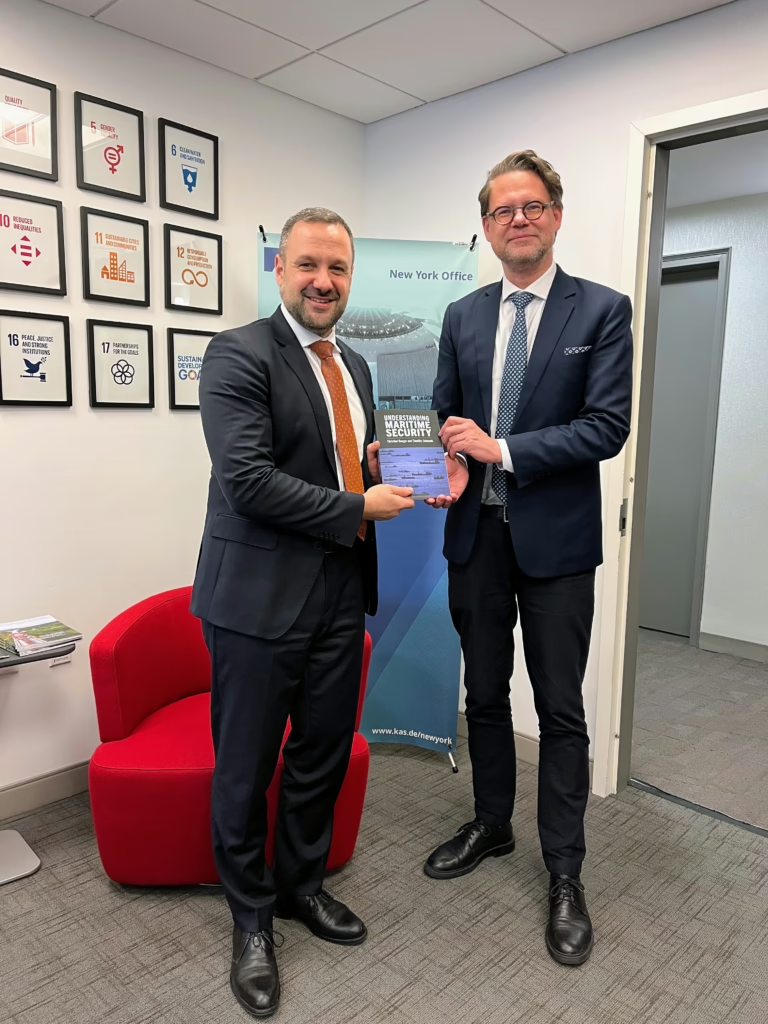Back in New York for a discussion on the UN’s role in global maritime security.
In 2025, the UN Security Council has held two general high level meetings on maritime security as well as an Arria formula meeting on seafarers. Additionally, dozens of smaller informal meetings were held in New York. The current momentum and the strong consensus of nations to improve maritime security responses, expressed at these events, is unprecedented. It reflects the rapidly evolving maritime challenges, including armed attacks on shipping, substandard shipping to evade sanctions, persistent piracy and smuggling.


At an event co-organized by the Konrad Adenauer Foundation (KAS) New York Office and Greece, we discussed what the UN could do better and more effectively. In my intervention, I laid out the challenges:
- The oceanic disconnect: Discussions on blue economy and marine conservation, e.g. within the framework of the UN Ocean Conference, are largely disconnected from maritime security debate.
- Too many agencies, too little coordination. As identified in our 2024 UNIDIR report, a high number of UN agencies address maritime security through different mandates, with no coordination processes between them.
- Capacity building traps. We lack solid understanding of who is training whom in what, and what types of capacity building are lacking.
- Data gaps: We are far from a comprehensive global picture of maritime security incidents, trends and patterns. While maritime domain awareness centers provide this on a regional level, no one ensures global data.
- Analytical void: There is too little analytical expertise within the UN to ensure that we make sense of patterns and trends, act preventively, and identify the norm deficits of emerging issues.
Following up on my intervention in the Council in May this year, I called for an office dedicated to maritime security. This would act as a clearing house and develop an annual report on the state of maritime security for the Council and General Assembly to consider. It could ensure sustainability, reduce waste of resources, and enhance efficiency.
Other speakers highlighted the need to mainstream maritime security across UN activities, including, e.g. in peace operations, stressed the importance of inter-regional cooperation, and flagged the need for preventive action. Newly emerging challenges were also discussed, including nuclear-powered ships and floating sea mines.
In 2026, countries with strong maritime interest, including Bahrain, Colombia and Liberia, will join the Council. This is likely to generate further momentum for maritime security. Whether the P5—notably Russia and China—will agree to a Council resolution that paves the way to a more structured and sustainable approach remains to be seen.
